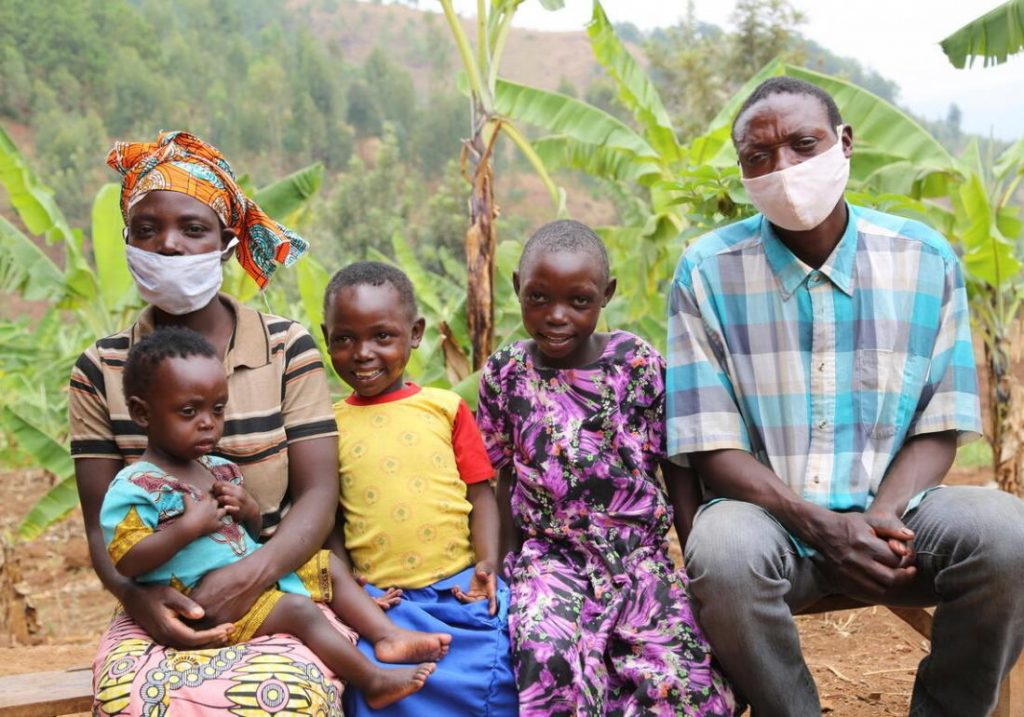
Ultra Poor Graduation Project in Rwanda
The Ultra-Poor Graduation (UPG) programmes provide extremely poor households with a pathway out of poverty by helping families engage in a productive and resilient livelihood. This programme gradually builds household capacity and empowers families to become involved with the local economy and community in productive and positive ways.
As ultra-poor families begin to move out of poverty, their children’s lives improve. Parents and caregivers gain the dignity of being able to provide nutritious meals and pay for their children’s healthcare and education needs.
World Vision’s Global Livelihoods partnered with World Vision Rwanda (WVR) and others to bring to the UPG project the Last Mile Mobile Solutions (LMMS) to bring the ability to digitize a large amount of data, and providing impact reporting.
Bringing digitization through the use of LMMS into all areas of humanitarian assistance increases accountability, transparency and provides easy digitization tools at every step of the way, all the way from the field activities.
The UPG is a highly sought after Core Project Model, by both donors and World Vision offices alike. It is a powerhouse that generates visible results in communities and has rigorous evidence of impact.
Rigour, involves collecting a vast amount of data
at a high frequency;
a tall order for any programme.
This was the challenge faced by WVR while implementing UPG at a national scale in partnership with the Government of Rwanda and a colossal number targeting more than 50,000 households (approximately 230,000 beneficiaries) over the next five years. It was evident that a technological solution that can effectively collect and manage routine data to inform implementation strategy was needed.
WVR found an answer in LMMS, World Vision’s in-house technology originally developed for humanitarian response in 2008.
LMMS posed as an attractive solution as it can develop household profiles through beneficiary registration, including multi-sector data which is easily collected and visualised, and can also integrate this data through Flexible Forms in the use of Kobo Toolbox used for lengthy surveys/questionnaires, Post Monitoring Distribution and more. Moreover, WVR already had internal capacity of LMMS from past emergency operations, so it is a very cost-effective choice as well.
“the technology was appreciated at the field-level as it reduced the chances of error during data collection and aids a large team of enumerators to remain consistent to the original plan.”
said Aimable Nsengiyumva
WVR’s Resilience and Livelihoods Technical Programme Manager
He also appreciated the fact that the technology engages community respondents as active stakeholders since the interactions are directly captured on Android phone applications and immediately reflected in the system.
To draw on WVR’s rich experience and learning from this pilot, WVR, World Vision’s Livelihoods Global Sector and Technical Service Organisation (TSO) teams joined forces. A year-long learning plan was developed, where the TSO was paired up with WVR’s Resilience and Livelihoods Team to regularly touch base and collect lessons learned that will benefit the global partnership. We have been asking questions such as ‘Was the set up easy?’, ‘How much did it cost?’ and ‘What steps have you found most important to take?’ The learning from this exploratory endeavour aims to inform other Field Offices that are planning to follow suit in their UPG operations, as well as offices that are interested in digitising monitoring and evaluation systems for other Livelihoods core project models in general.
Frank Muhwezi, Senior Programmes Quality Manager of Field Operations from World Vision Rwanda, describes the initiative as “a truly collaborative learning effort that brings World Vision’s and the LMMS teams together to build World Vision’s institutional knowledge on using technological solutions for rigorous evidence.”
Julie Byun, the assigned Technical Advisor, who works closely with WVR’s R&L TP manager to capture learning says the initiative is “a very exciting piece of work, which fosters not only mutual learning, but also relationships that opens doors to much more potential for joint collaboration in program quality, grants and strategic partnerships in the future”.
Additional insights on Ultra Poor Graduation programs, and this story based on article originally posted on wvi.org